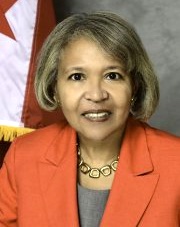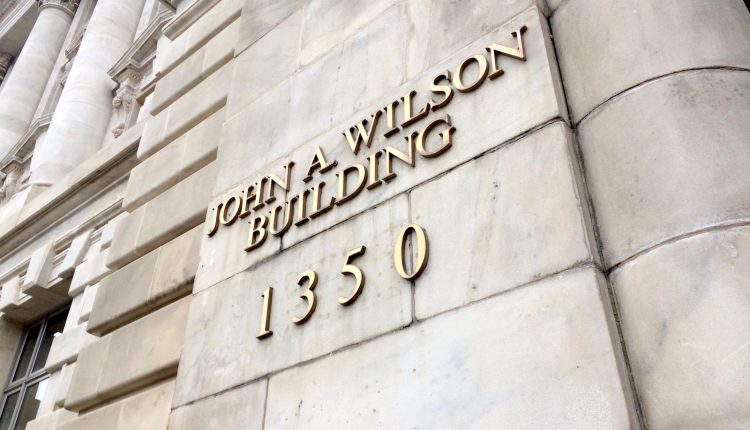Laura Richards and Sylvester Bush: DC lags behind 38 states in pension tax breaks for seniors
The House of Representatives is showing renewed interest in statehood for the District of Columbia. With the House leadership all on board and Democrats holding a majority, the House could pass the Washington, D.C. Admission Act this year, notwithstanding its inevitable fate in the GOP-controlled Senate.

Laura Richards is a
coordinator of the Coalition to Restore DC’s Pension Benefit.
Even without the benefit of statehood, however, there is an important area where the District can emulate the majority of states — income tax relief for seniors. The city has steadfastly refused to enact tax relief since repealing a very modest benefit in 2014, even though it purportedly did so by mistake.
Of the 41 states that levy an income tax, 38 provide some form of senior tax relief. Two of the most generous states are DC’s neighbors: Maryland does not tax the first $30,600 of pension income, and Virginia excludes $12,000 of pension income for single seniors with incomes up to $50,000 and for married taxpayers with incomes up to $75,000.
How much of an impact can that make on seniors’ tax bills? Consider two examples: A single person aged 65 or older with $59,200 in civil service or military pension income would pay $1,710 in state tax as a Maryland resident — but as a DC resident would owe $2,566 in state tax. That’s mostly because a person living in Maryland is able to exclude $30,600 of their pension income; DC seniors get only the $12,000 standard deduction available to all taxpayers.
For a married couple age 65 and older with $96,400 in civil service and military pension income, Maryland would collect $1,626 in state tax if they lived there; DC would get $3,792 in state tax if they reside in the District. The married couple living in Maryland is able to exclude $61,200 of their pension income.
DC Council members are quite aware of this tax gap that harms many of our city’s seniors.
For the past three years, members have introduced bills that would give tax relief to seniors who receive pension income from the federal and DC governments (including military pensions). The Pension Exclusion Restoration and Expansion Act of 2019, introduced on Jan. 8 by Ward 7 Council member Vincent Gray with support from eight colleagues, would allow public pensioners to exclude up to $20,000 from DC income taxes. Gray introduced similar bills twice in 2017— the Senior Citizen Tax Relief Amendment Act on Jan. 10 and the Pension Exclusion Restoration and Expansion Act on June 6 — with majority council support each time.
Yet the issue remained stalled in the Committee on Finance and Revenue, which turned a deaf ear and a blind eye to petitions, resolutions and emails. The committee, where all three bills were referred, never held a hearing on any of the bills, forcing residents to gate-crash hearings on other budget measures to present their testimony. That committee was disbanded earlier this month amid the ethics controversy surrounding its chair — Ward 2’s Jack Evans, who co-sponsored all three versions of the bill — but the council’s website doesn’t yet show a new referral for the 2019 bill.
There are approximately 85,000 seniors aged 65 and older currently living in the District. Of those, approximately 40,000 receive a public pension and would benefit from the proposed exclusion. Those numbers reflect DC’s traditional status as a government company town. Those 40,000 pensioners include some 455 military retirees that live in the Armed Forces Retirement Home, where the average age is 84.
Senior tax relief, at the federal and state levels, is grounded on the recognition that seniors’ incomes generally decline at the same time their medical costs, property taxes and other expenses are rising. Financial distress among the aging is increasing. A nationwide 2018 study by the Consumer Bankruptcy Project, Graying of U.S. Bankruptcy: Fallout From Life in a Risk Society, found that from February 2013 to November 2016, there were 3.6 bankruptcy filers per 1,000 people aged 65 to 74; in 1991, there were only 1.2. Today, individuals aged 65 and older represent 12.2 percent of all bankruptcy filers; in 1991 their share was just 2.1 percent. While dealing with the same financial circumstances affecting seniors generally, those in the District face the additional challenge of living in one of the 10 most expensive cities in the country.
A tax break that aids nearly half of DC pensioners is not unreasonable. The council has not been averse to other, much narrower targeted tax breaks. For instance, it exempts interest on municipal bonds issued by states and cities outside the District. States typically tax other states’ bonds and exempt only their own. In 2011, the council passed a law eliminating the tax break for any out-of-state bonds that investors purchased after the law was passed. Investors balked and the council restored the full exemption within a year.
As we noted, the District used to have a senior tax break, though its value declined over time due to inflation. Beginning in 1957, Congress allowed civil service pensioners to exclude $3,000 from District of Columbia taxable income. (It’s worth noting that the benefit was quite substantial at the time: The national median income in 1957 was $5,200, and $3,000 in 1957 dollars amounts to $27,308 today.) The council repealed the exclusion in 2014 as part of a citywide tax overhaul. Evans, calling the action a mistake, has said publicly that the council repealed the benefit inadvertently.
The repeated introduction of bills to restore and substantially increase the benefit demonstrates that many council members believe seniors need this assistance. Yet the hopes of 40,000 retirees have been raised and dashed for the past three years. It is past time to end this dismal cycle and enact the $20,000 tax exclusion when council members return from their summer recess. The District should act like the state it aspires to become.
Laura Richards and Sylvester Bush are coordinators of the Coalition to Restore DC’s Pension Benefit. Richards is a retired federal attorney and a former member of the DC Board of Ethics and Government Accountability and the DC Board of Zoning Adjustment. Bush is a retired federal IT project manager.
About commentaries
The DC Line welcomes commentaries representing various viewpoints on local issues of concern, but the opinions expressed do not represent those of The DC Line. Submissions of up to 850 words may be sent to editor Chris Kain at chriskain@thedcline.org.



Comments are closed.